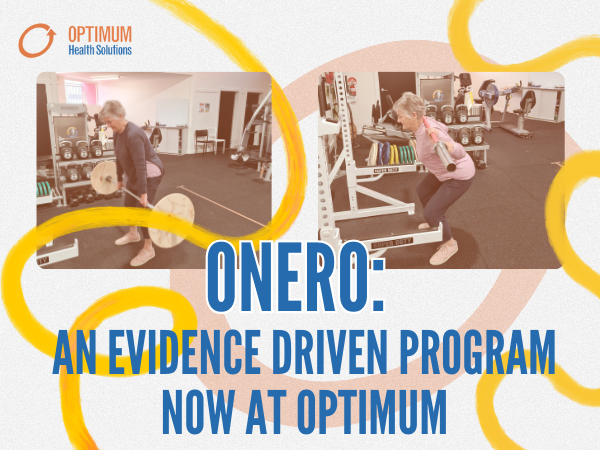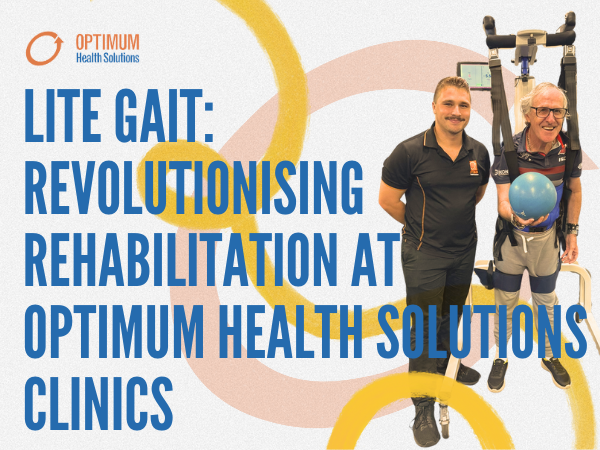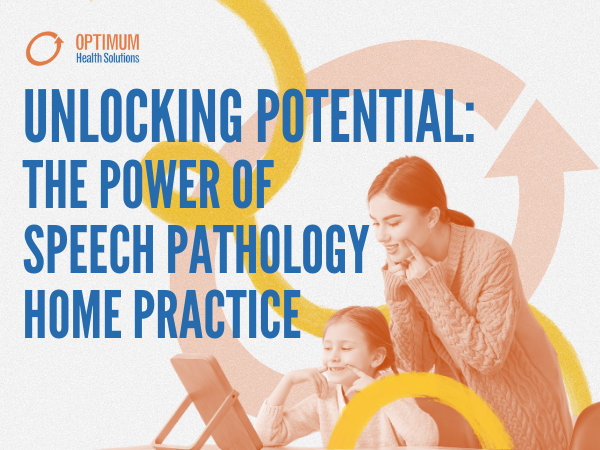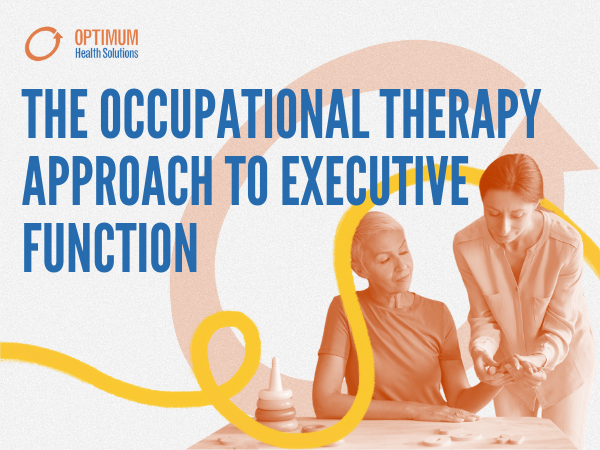This article will explore the experiences of youth with disability transitioning from school into successful and productive adult life.
These transitions may include leaving school for paid or unpaid work, further education, volunteering, day programs or community participation.
This article explores how Occupational Therapists (OTs) can be utilised throughout this transition. It is difficult to understand that despite those with a disability often having the post-school employment and education aspirations as those without disability, only 48% of working-age individuals (aged 15-64) with disability are employed, in comparison to 79% without disability (Australian Institute of Health and Welfare, 2019). Taylor and Mailick (2014) found that those with Autism Spectrum Disorder (ASD) leaving school had poor education and career outcomes that were sustained across the lifespan.
Children with Disability Australia (2015) findings suggest that young people with disability have limitations in choice, control and opportunities.
Transitioning from Formal Education to Adult Life
Often, leaving school requires major changes in academic and general life routines and habits for young people. This can be challenging for many individuals with a disability and their families.
For many students, this means leaving a supportive environment they have been a part of for several years, it is often a time of uncertainty, involving challenges and changes that are likely to impact an individual’s sense of identity, along with their habits and roles (Young et al., 2016).
The role of the National Disability Insurance Scheme (NDIS) in this transition
The recent introduction of the NDIS has meant that there are changes to the way services are provided within Australia throughout this transition.
There is also a lack of information relating to the impact NDIS funding has on this transition as studies are yet to be undertaken or published.
The NDIS can assist with funding for ‘school leaver employment support’, this scheme helps students for up to two years post-school prepare for employment or further education (National Disability Insurance Scheme, 2019). The NDIS can also fund relevant health professionals including Occupational Therapists if it is deemed relevant to their individualised plan goals (NDIS, 2019).
The role of Occupational Therapy in enhancing Transition Outcomes
Evidence suggests that there are 8 best practices to encourage the successful transition from school to adult life.
These include paid or unpaid work experience, employment preparation, family involvement, general education inclusion, social skills training, daily living skills training, self-determination training and community or agency collaboration (Landmark, et al., 2010).
Occupational Therapists play an integral role in a number of these practices by:
Assessing the environment, occupation and/or the person.
Occupational Therapists may use formal or informal assessment tools to identify the needs, wants, strengths and aspirations of the individual.
Through evaluating the individual within their current context of school, therapists are able to see their roles, habits and how these shape the individual’s occupational identity. Thompson, et al. (2018) recommends a strengths-based approach should be taken to ensure transition planning is client-centred and focuses on maximising the young person’s strengths and potential.
By focusing on an individual’s strengths, their self-confidence is increased and in turn, their self-determination is improved (Angell et al., 2019).
Occupational Therapists may intervene in specific environments and recommend Assistive Technology, environment modifications or sensory tools to facilitate and improve the occupational performance of the individual and their transition outcomes.
Family involvement
Family involvement is another key transition practice identified. Families are an integral part of the transition process and their views, opinions and expertise should be considered throughout the therapeutic process.
Occupational therapists have a profound understanding of the role families play throughout their lifespan. OTs understand the importance of considering the aspirations and expectations families have throughout this transition. According to Thompson, et al, (2018) families of those with ASD want the young person to be understood, to understand the world and to be successful.
To be understood reflects a desire for the young person’s strengths and abilities to be noticed and accepted within the environment aside from their diagnoses. Understanding the world highlights the challenges that young people with ASD may have in social interaction or emotional recognition. The theme of succeeding was a desire for the young person to be a successful adult, matching employment or social ventures in ways that complemented their skills and strengths (Thompson et al., 2018).
Advocating for the rights and choices
Advocating for the rights and choices of those with disability. OTs are well situated to advocate for and deconstruct a number of negative stereotypes and attitudes within today’s society and culture. They can do this in a number of ways, for example, policymaking, or teaching young people the skills to champion their opinions and rights.
Practically, this can be outworked by advocating workplaces for the employability of the individual with a disability.
Another way to do this is to support the development of self-determination skills. Angell et al. (2019) report that self-determination is directly within the Occupational Therapy scope of practice.
This study suggests that therapists can facilitate self-determination by supporting students during goal setting and identifying meaningful occupations (Angell et al., 2019). Hatfield et al. (2017) suggest that encouraging young people with ASD to have high aspirations for successful adult life and outcomes will assist in developing their self-determination.
These self-determination skills can in turn facilitate their ability to advocate for themselves and combat the ‘low expectation’ cultural attitude and stereotype previously mentioned.
Social and daily living skills training
Social and daily living skills training are aligned with core Occupational Therapy practice. These skills can be targeted within early childhood for those who require them, however, these skills are still warranted and necessary in high school settings.
Implementing Occupational Therapy that focuses on these skills whilst in high school can improve the student’s ability to become more independent with their daily care needs (Miller, 2012). Social skills are important to ensure that young people transitioning have social and self-awareness that facilitates social navigation in their productive adult roles.
Occupational therapists may assist with social skill acquisition to facilitate better outcomes during and post-transition. Daily living skills may consist of general self-care activities such as grooming and showering which will provide a foundation for productive and successful adult life.
Occupational therapists can be involved in skill acquisition or education to increase opportunities for employment and social ventures.
Stress and Anxiety management
Stress and Anxiety management is an important area OTs can address during this transition. Henninger and Taylor (2014) and Young et al. (2016) identified that adolescents with a disability and without, both expressed worries and anxiety regarding this transition.
However, those with disability were significantly more anxious and worried than their peers without disabilities. Occupational therapists can have a role in supporting the development of stress and anxiety management skills during this time to improve mental health outcomes for students with or without a disability.
This can be done within schools and focus on including entire cohorts regardless of disability status. Strategies, skills and plans can be provided to facilitate better mental health outcomes and increased self-confidence and self-determination throughout this transition.
Overall, Occupational Therapists can provide in-depth assessments of the needs of young adults and make recommendations that will improve their occupational performance and increase successful transitions to meaningful and productive adult life.
Article References
- 1. Angell, A., Carroll, T., Bagatell, N., Chen, C., Kramer, J., Schwartz, A., Tallon, M., & Hammel, J. (2019). Understanding self-determination as a crucial component in promoting the distinct value of occupational therapy in post-secondary transition planning. Journal of Occupational Therapy, Schools, & Early Intervention, 12:1, 129-143, https://doi.org/10.1080/19411243.2018.1496870
- 2. Australian Institute of Health and Welfare. (2019). People with disability in Australia. (Cat. no. DIS 72. Canberra: AIHW) https://www.aihw.gov.au/reports/disability/people- with-disability-in-australia
- 3. Children with Disability Australia. (2015). Post school transition: The experiences of students with disability. https://apo.org.au/sites/default/files/resource-files/2015-12/apo-nid60943.pdf
- 4. Hatfield, M., Falkmer, M., Falkmer, T., & Ciccarelli, M. (2017). “Leaps of Faith”: Parents’ and professionals’ viewpoints on preparing adolescents on the Autism Spectrum for leaving school. Journal of Research in Special Educational Needs, 17(3), 187-197. https://doi.org/10.1111/1471-3802.12377
- 5. Henninger, N. A., & Taylor, J. L. (2014). Family perspectives on a successful transition to adulthood for individuals with disabilities. Intellectual and Developmental Disabilities, 52(2), 98-111.https://doi.org//10.1352/1934-9556-52.2.98
- 6. Landmark, L. J., Ju, S., & Zhang, D. (2010). Substantiated best practices in transition: Fifteen plus years later. Career Development for Exceptional Individuals, 33(3), 165–176. https://doi.org/10.1177/0885728810376410
- 7. Miller, E. (2012). Occupational therapists’ intervention approaches in secondary transition services for students with disabilities (Doctoral dissertation, Eastern Kentucky University). http://ezproxy.uws.edu.au/login?url=https://search-proquest- com.ezproxy.uws.edu.au/docview/1034257571?accountid=36155
- 8. National Disability Insurance Scheme. (2019). Leaving school. https://www.ndis.gov.au/participants/finding-keeping-and-changing-jobs/leaving- school
- 9. Taylor, J., & Mailick, M. (2014). A longitudinal examination of 10-year change in vocational and educational activities for adults with Autism Spectrum Disorders. Developmental Psychology, 50(3), 699-708. https://doi.org/10.1037/a0034297
- 11. Young, R., Dagnan, D., & Jahoda, A. (2016). Leaving school: A comparison of the worries held by adolescents with and without intellectual disabilities. Journal of Intellectual Disability Research, 60(1), 9-21. https://doi.org/10.1111/jir.12223
- 10. Thompson, C., Bölte, S., Falkmer, T., & Girdler. S. (2018). To be understood: Transitioning to adult life for people with Autism Spectrum Disorder. PLoS ONE, 13(3), E0194758. https://doi.org/10.1371/journal.pone.0194758
The article content is of the respective authors, researchers and case studies provided and not of the publishers of this article. The readers should make his or her own evaluation of the accuracy and appropriateness of findings before applying it to themselves. Optimum Health Solutions cannot accept any legal responsibility or liability for any errors or omissions that may be made.








